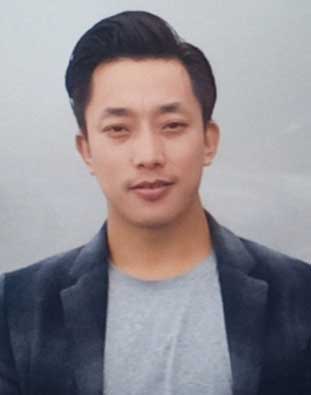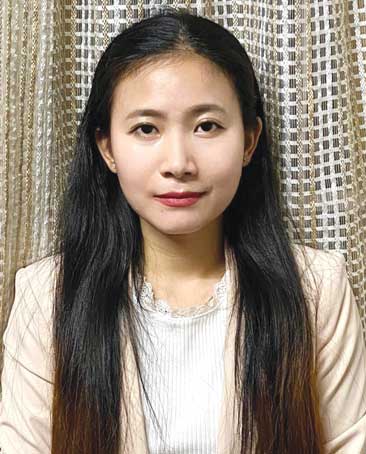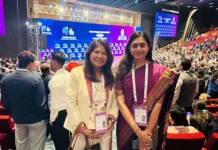[Nellie N Manpoong]
ITANAGAR, Jun 11: The declaration of the results of the Arunachal Pradesh Public Service Combined Competitive Examination (APPSCCE) on 6 June has revived the enthusiasm of aspiring candidates from the sluggish routine Covid-19 had put many into.
While stories of those who cleared the examination fighting all odds – personal and professional – inspire new aspirants, the top three of this year’s APPSCCE spoke to The Arunachal Times about how it is essential to prepare smart.

Twenty-six-year-old Niti Taki, who has topped this year’s APPSCCE with geography and anthropology in her first attempt, had also topped the assistant engineer (civil) examination conducted last year by the Arunachal Pradesh Public Service Commission, and has been serving as an assistant engineer here under the public works department since.
While she has a comprehensive list of books and online study sources, such as the websites of the Anthropological Survey of India and the Ministry of Tribal Affairs, a majority of it included old NCERT books from Classes 6 to 12.
A gold medallist from the NERIST, Nirjuli, Taki advised limiting resources and using the internet positively. She also suggested setting a long-term vision and putting time into multiple revisions.
“Do cost-benefit analysis and set your priorities straight,” she advised.
With an engineering background, she said that her grasp on CSAT was strong and she continued to practice mock tests, and at the same time referred to previous years’ questions.
Even though Taki has undergone institutional coaching for a year in Delhi, and for another three months in Naharlagun, she says that it is not an absolute necessity.
“Coaching is good for one’s orientation and sets the limits of the framework. It is good if you can afford the classes. However, it isn’t an absolute necessity. Others need not worry since all the study materials are available online.”
Securing the second place in his second attempt with geography and public administration papers this year, Nima Phuntsok is currently serving as a child development project officer in Tawang district.

A BTech computer science technology graduate from BV Bhoomaraddi College of Engineering, Phuntsok had cleared the APPSCCE in 2011 and secured the 10th rank that year in his first attempt.
The 32-year-old, who did not opt for any civil service coaching, also suggested focusing on what one wants to achieve and working towards that goal sensibly.
“Talent can only take one so far. Hard work will take you further ahead. An average student can do well in the exam if they work hard and utilize their time wisely,” Phuntsok said, and advised preparing for the mains in addition to preparing for the prelims.
While preparing for the prelims, Phuntsok said, he studied the basic NCERT textbooks thoroughly, and used the internet to visit websites such as Dristi and Vision IAS, and YouTube channels like Unacademy for concept clearance, while also going through The Hindu app.
For the mains, Phuntsok reiterated his advice on preparing for it along with the prelims.
“It’s extremely important to stick to the syllabus. Make very concise notes and revise every topic weekly. Complete the syllabus two months prior to the exam and revise,” he suggested.
For the interview, Phuntsok said, he read the editorials of The Arunachal Times for the state’s current affairs and watched the Rajya Sabha TV channel on various current issues, besides preparing extensively on the detailed application form.
He also spoke to colleagues on various issues to get varied perspectives.
An MPhil scholar in clinical psychology from the Institute of Human Behaviour and Allied Sciences, Shahdara, under the Delhi government, since October 2019, Hibu Kapi secured the third rank in her first attempt at the APPSCCE.

With psychology and anthropology as her subjects, the 26-year-old suggested extensive reading of all the basic standard books prescribed for the Union Public Service Commission, including referred books on tribal governance and Northeast history by local authors. She also advised reading current affairs notes by Vision IAS.
“For psychology, I covered topics from different books. It’s vast, but the basics include Morgan & King, abnormal psychology, applied psychology, and more. I also referred to the Braintree notes for anthropology,” she said.
Kapi had also attended classes at the Vajiram and Ravi Institute, Delhi, for the UPSC in 2015, but personally feels that institutional coaching is definitely not a necessity.
“It is often a waste of time and resources. Self-study and a good mentor is the key,” she said.
Terming time management an important factor, Kapi said “studying for three hours a day is enough, but it should be smart, efficient and productive. Cover the whole syllabus, and sit with the syllabus at your hand while studying. Make short side notes on them to ensure that you don’t go astray and waste time on unnecessary topics.”
She also advised future aspirants to take care of their mental health.
“Self love and care is essential. It’s okay to slack off some days if that makes you happy, but make your priorities, and focus on them with grit and determination,” she added.
Notably, all three refrained from using unnecessary sources on the internet, such as social networking sites. However, Twitter served as a source to some to remain updated on the most current events.
They also attributed their successful performances to their families, close friends and mentors even as uncertainty loomed over the APPSCCE.
“My family has played an indispensable role in providing me with emotional comfort, mental and financial support,” Taki said.
Phuntsok also said that staying with his family eased the additional responsibilities of taking care of the household chores, attending office and at the same time preparing for the civil services.
“It would have been difficult to deal with multiple tasks had my family not supported me through it,” he said.
“My parents were the pillars of optimism and encouragement. They had faith in me even when I regressed into episodes of self-doubt and uncertainty,” said Kapi.
The three also advised future aspirants to not get discouraged, and to put their best foot forward even during stressful times.
“Every hard-working candidate will get their place. One needs to re-strategize and move forward,” they said.
It may be difficult for some to relate to those who are more privileged or those we consider having had it easier than us, but everyone has had their share of peaks and valleys. It would be unjust to undermine the hours and years of hard work each person has put into an exam, especially one that took three years.
The strategies of these three should be considered as a guide, and serve as a reminder that our privileges can and should be honoured and put to good use.

